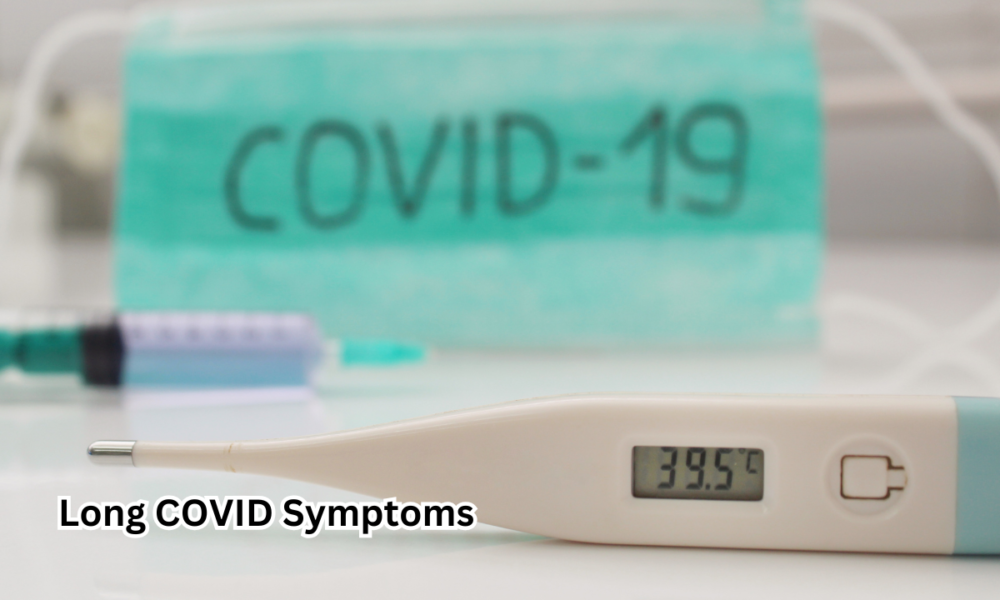Strategies for Managing Long COVID Symptoms
Key Takeaways
- Long COVID-19 presents varied symptoms that require thoughtful management.
- Combining conventional treatments with lifestyle adjustments can offer relief.
- Support networks and ongoing research are crucial for understanding and alleviating symptoms.
Understanding Long COVID Symptoms
The long-lasting symptoms of COVID-19, often referred to as Long COVID, have posed considerable challenges for many individuals worldwide. Understanding and managing this complex condition is vital as the pandemic persists. While symptoms are varied and can significantly differ from one person to another, some common issues include persistent fatigue, shortness of breath, and cognitive impairments, such as brain fog. Finding effective long COVID fatigue treatment solutions has become a top priority for many individuals. Recognizing the multifaceted nature of Long COVID is pivotal for forming comprehensive management strategies that cater to the unique needs of each individual.
Extensive studies have discovered diverse symptoms associated with Long COVID-19 recovery. These symptoms frequently include continued breathlessness, joint discomfort, and mental fatigue weeks or months after a recovery. The eclectic nature of these symptoms necessitates a nuanced approach to treatment and support, emphasizing the importance of personalized care.
Traditional Treatment Approaches
The journey of managing Long COVID symptoms often begins with traditional medical treatments. Healthcare experts play an essential role in diagnosing and developing individualized treatment options. For instance, individuals struggling with physical fatigue might benefit from a customized physiotherapy regimen to gradually restore physical strength and mobility. Conversely, cognitive challenges like brain fog may respond well to cognitive-behavioral therapy or structured mental exercises to enhance focus and memory. Patients can benefit from the experience of healthcare practitioners by working together to address the complex interaction of symptoms through complete, tailored treatment regimens. This targeted approach represents a cornerstone in managing COVID and fostering long-term health improvements.
Integrating Lifestyle Changes
In addition to traditional treatments, integrating health-promoting lifestyle changes can significantly mitigate the effects of Long COVID. Regular physical activity, tailored to individual capabilities, enhances physical fitness and boosts mental health by releasing endorphins, often called “feel-good” hormones. Even minor adjustments, such as daily walks or low-impact yoga, can make a substantial difference. Moreover, a diet rich in nutritional diversity that includes plenty of fruits, vegetables, lean proteins, and whole grains can enhance body function and resilience. Prioritizing a consistent sleep schedule is also crucial, as quality rest is fundamental to recovery and mental acuity. While these habits are universally beneficial, their positive impact may be especially pronounced for individuals managing the lingering effects of long-term COVID, promoting sustained well-being.
The Role of Nutrition
The importance of nutrition in managing and recovering from Long COVID cannot be overstated. Proper nutrition underpins health, supports the immune system, and supplies the energy required for daily activities and recovery. A diet incorporating antioxidants, such as those in berries and dark leafy greens, can combat oxidative stress and promote overall cellular health. Similarly, omega-3 fatty acids, commonly found in fish and flaxseeds, promote brain health and help reduce inflammation. Additionally, vitamins such as D and C play a vital role in boosting immune function and aiding tissue repair. These nutritional elements should be a cornerstone of any recovery strategy for Long COVID, potentially leading to improved resilience and recovery outcomes.
Mental Health Support
The psychological impact of Long COVID is profound, necessitating a strong focus on mental health support. The constant battle with ongoing symptoms can be mentally exhausting, leading to feelings of anxiety, stress, and depression. Addressing these aspects is just as crucial as managing physical symptoms. Therapeutic practices like cognitive-behavioral therapy can provide coping mechanisms and strategies to manage stress. Additionally, mindfulness techniques and regular relaxation practices such as yoga or meditation may help reduce psychological stress and improve emotional balance. Engaging with mental health professionals offers not just treatment but also a supportive environment to navigate emotional challenges, fostering a more holistic recovery.
Leveraging Support Networks
Building and relying on support networks is integral for those dealing with Long COVID. Family and friends often provide essential emotional support and can aid in managing practical day-to-day tasks. Additionally, participating in community groups or support networks allows individuals to share their experiences and advice, providing comfort and reducing feelings of isolation. These groups foster a sense of belonging, proving invaluable for mental health and recovery. Sharing resources and strategies within these networks facilitates learning and adaptation, empowering individuals through collective experiences.
Ongoing Research and Future Prospects
As the scientific community continues investigating COVID, ongoing research initiatives provide valuable insights into effective treatments and management strategies. This research seeks to understand the underlying mechanisms of Long COVID, which can lead to the development of more targeted therapies. For individuals affected by this condition, staying informed about scientific advances allows for proactive management and participation in emerging treatment options. The growing body of research expands our comprehension of long-term COVID and promises innovative solutions, offering hope and improved quality of life for those impacted.







